July 30, 2024 By Amina Momin 10 minutes read

Continuous learning is crucial for mechanical engineers who want to stay ahead in this fast-paced field. Coursera, a well-known online learning platform, offers numerous courses to help mechanical engineers enhance their skills and advance their careers. Here, we explore the top 10 Courses for Mechanical Engineers that can significantly impact your professional journey.
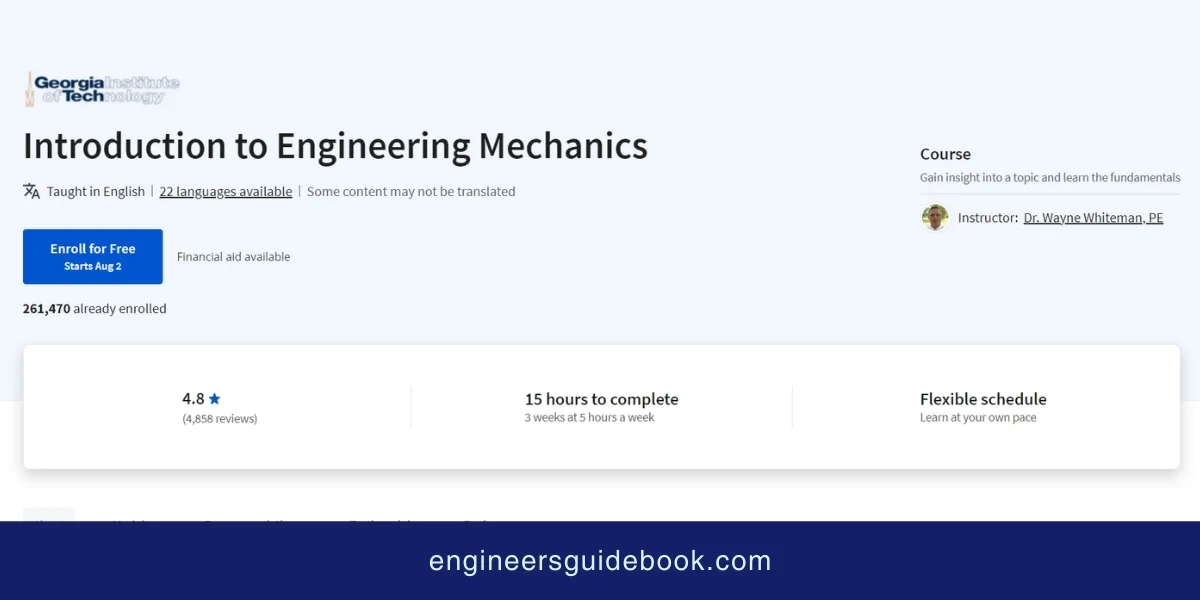
The “Introduction to Engineering Mechanics” course provides a solid foundation in engineering mechanics, focusing on the fundamental concepts and principles essential for understanding and analyzing mechanical systems. This course particularly benefits those starting their engineering journey, offering insights into real-world engineering problems and solutions.
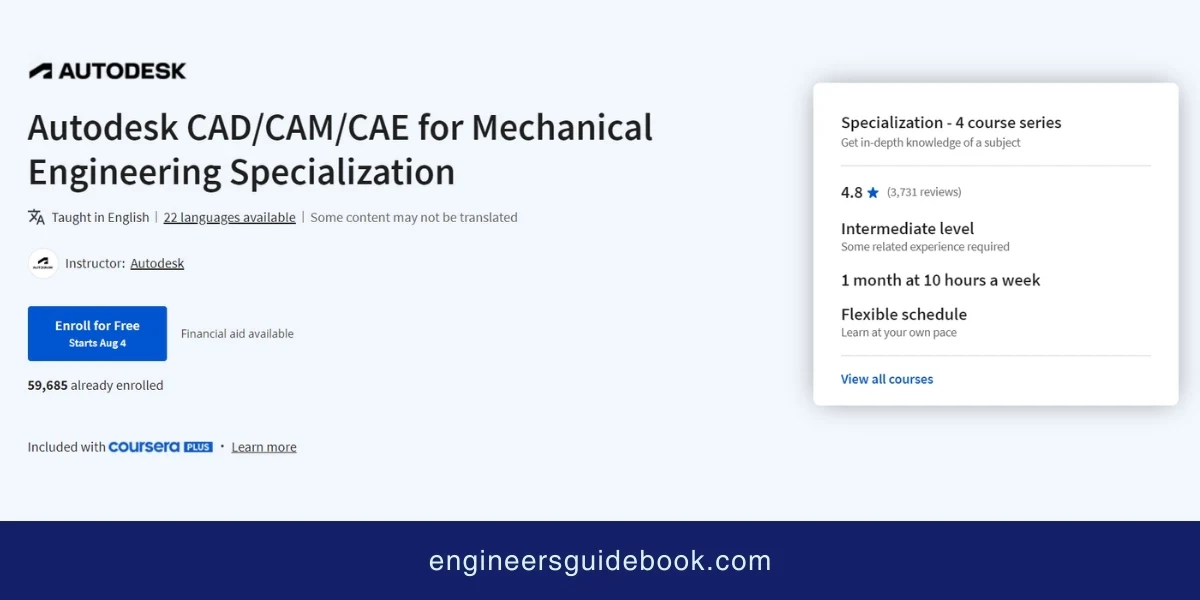
The “Autodesk CAD/CAM/CAE for Mechanical Engineering” specialization on Coursera offers mechanical engineers the opportunity to master essential skills in computer-aided design (CAD), computer-aided manufacturing (CAM), and computer-aided engineering (CAE).
This specialization comprises four comprehensive courses that provide hands-on experience using Autodesk Fusion 360, a leading software tool for design and manufacturing.
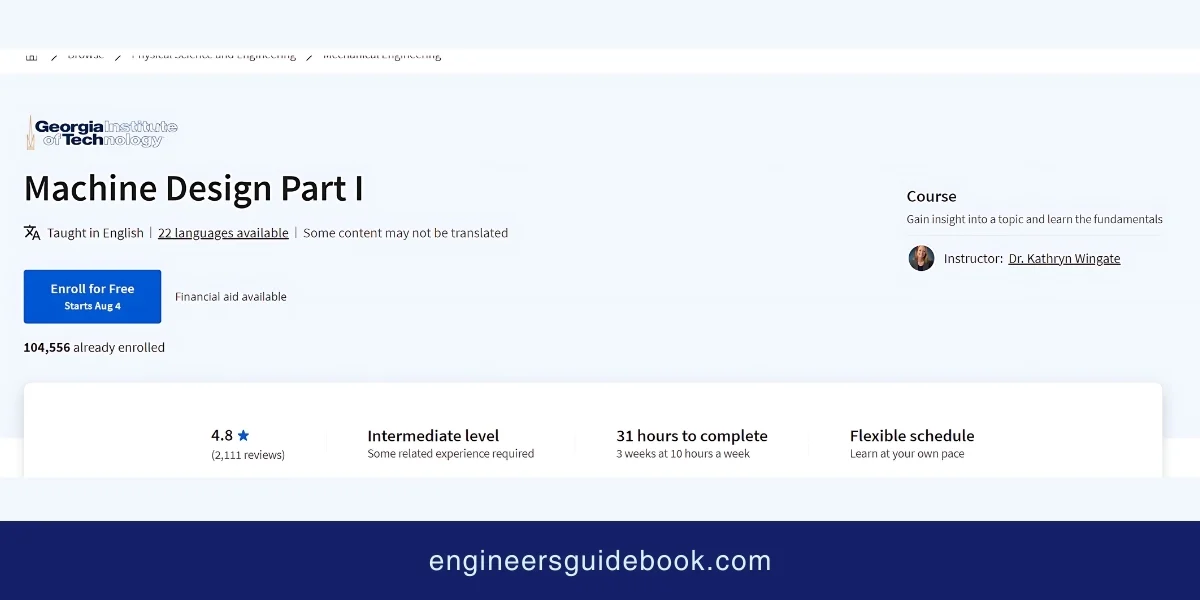
“Machine Design Part I” is an essential course for mechanical engineers looking to deepen their understanding of machine design.
This course covers the fundamental concepts and analytical methods required to design and analyze machine components.
It is particularly useful for intermediate learners who want to enhance their design skills and apply them to real-world engineering challenges.
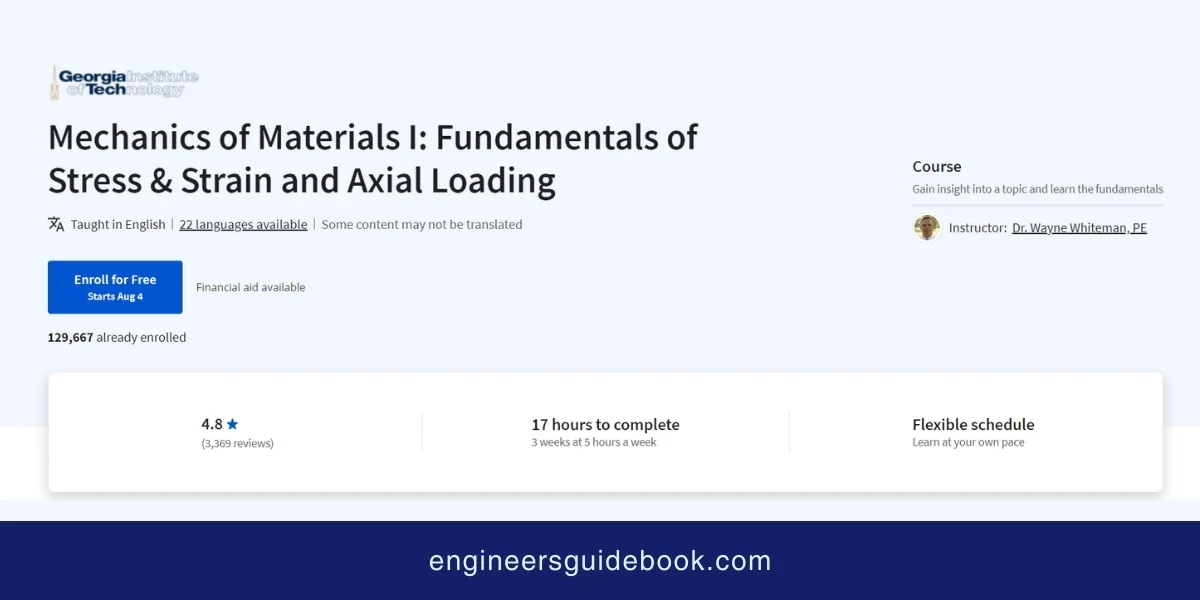
Duration: 1 – 3 Months
The “Mechanics of Materials I: Fundamentals of Stress & Strain and Axial Loading” course focuses on understanding how materials behave under various types of forces and loads.
This course covers essential concepts such as stress, strain, and axial loading, providing mechanical engineers with the analytical tools needed to evaluate and design structures and components.
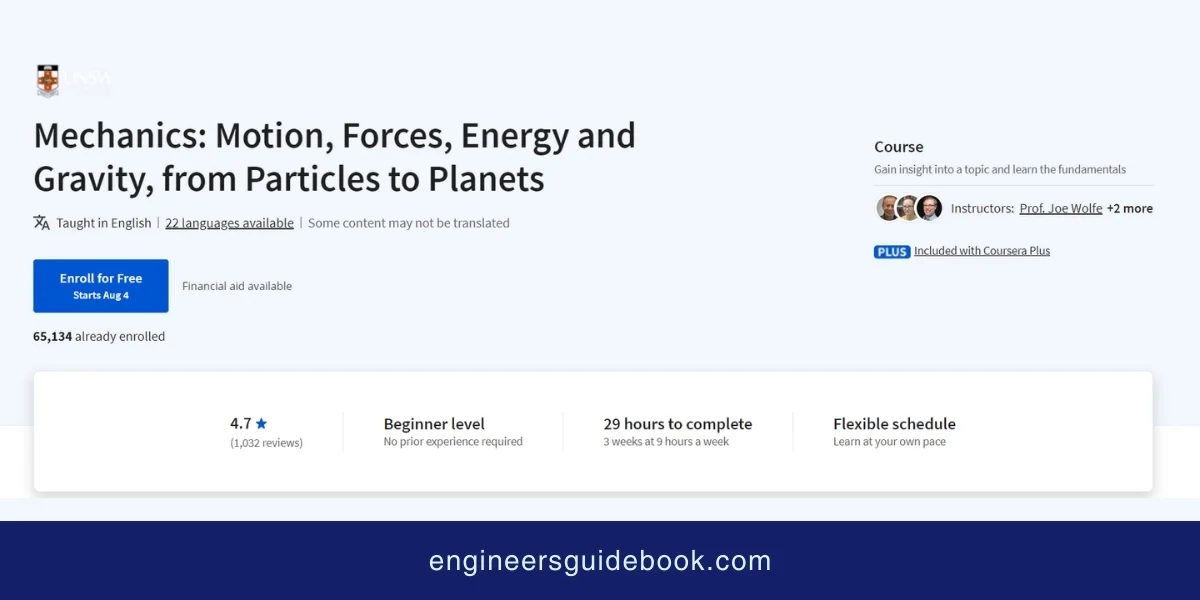
Duration: 1 – 3 Months
The “Mechanics: Motion, Forces, Energy, and Gravity, from Particles to Planets” course offers a comprehensive understanding of the fundamental principles governing mechanics.
It explores the interactions of motion, forces, energy, and gravity across different scales, from subatomic particles to celestial bodies.
This course is ideal for mechanical engineers looking to deepen their knowledge of classical mechanics and its applications in various fields.
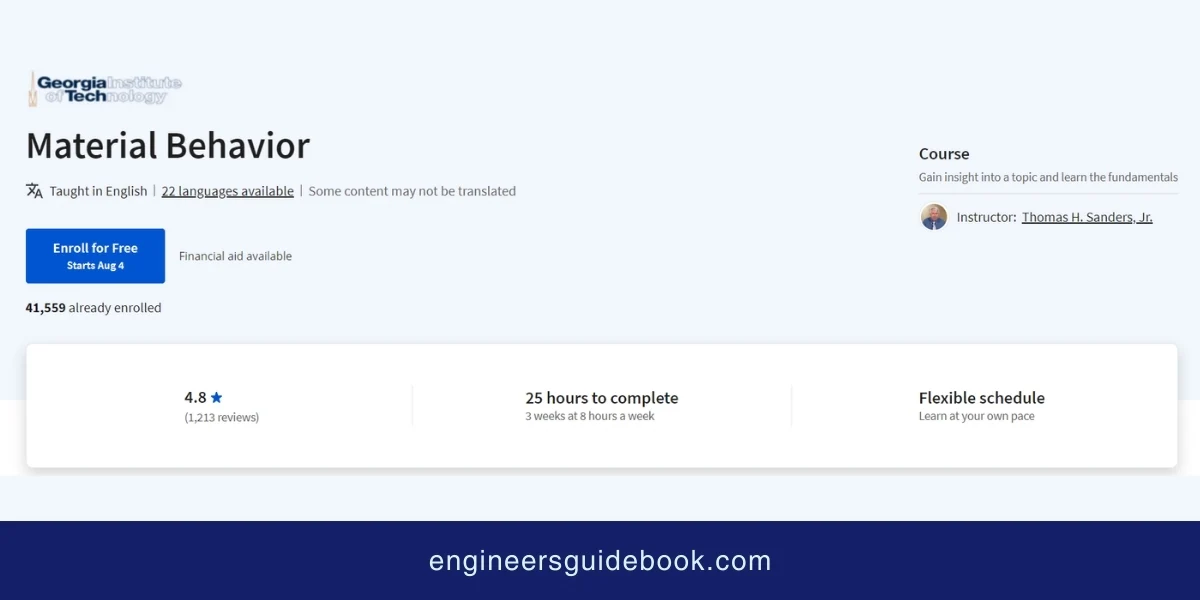
Duration: 1 – 3 Months
“Materials Science: 10 Things Every Engineer Should Know” is an insightful course that offers an essential understanding of materials science principles for engineers.
This course provides a comprehensive overview of the key concepts and considerations in material selection and application, helping engineers make informed decisions in their designs and projects.
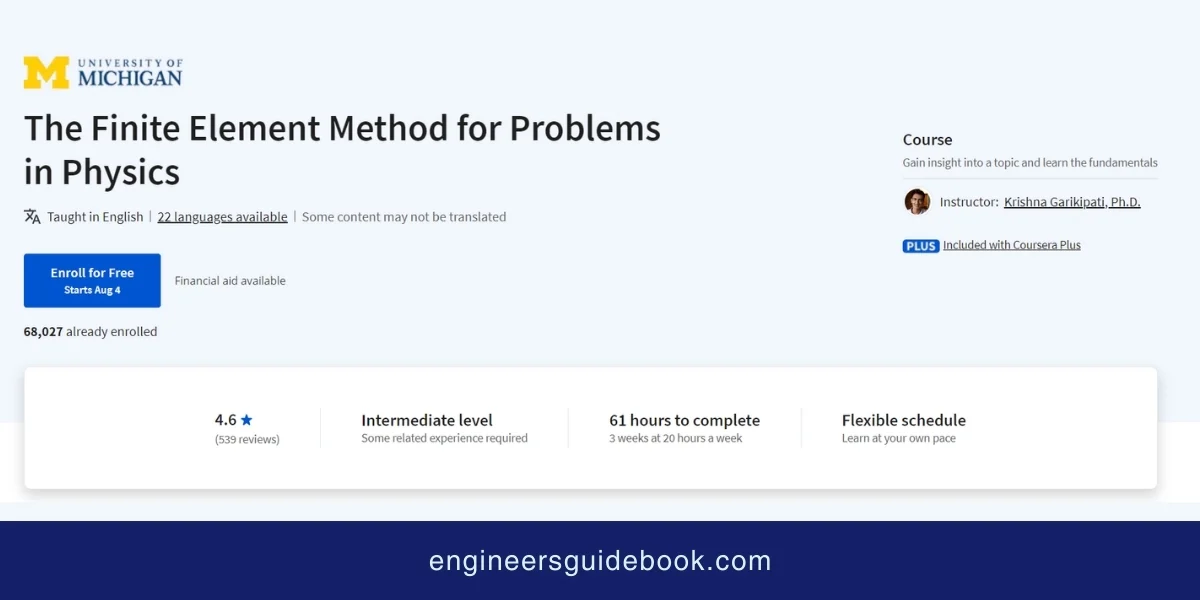
Duration: 3 – 6 Months
“The Finite Element Method for Problems in Physics” is a specialized course designed to equip mechanical engineers with the skills needed to solve complex physics problems using the Finite Element Method (FEM).
This powerful computational technique is used widely in engineering to analyze and simulate the behaviour of structures and systems.
This course particularly benefits engineers interested in simulations, modeling, and computational mechanics.
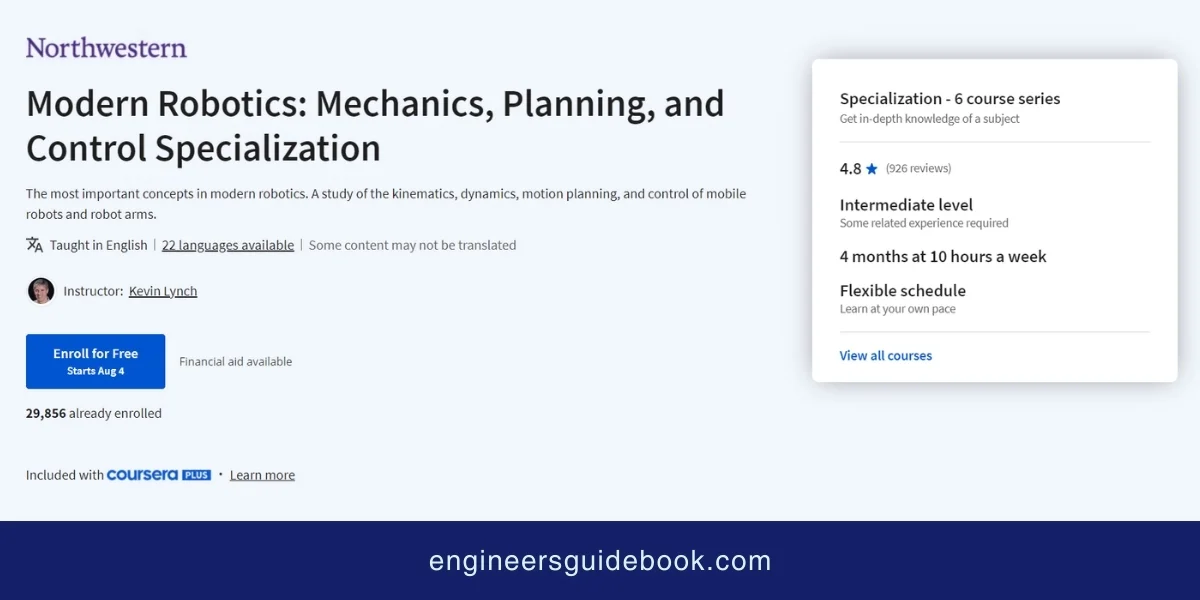
Duration: 3 – 6 Months
“Modern Robotics: Mechanics, Planning, and Control” is an advanced specialization that provides a comprehensive understanding of the mechanics and control of robotic systems.
This course covers various aspects of robotics, from mathematical modelling to motion planning and control. It’s ideal for mechanical engineers specialising in robotics and automation, providing them with the knowledge and skills needed to design and control complex robotic systems.
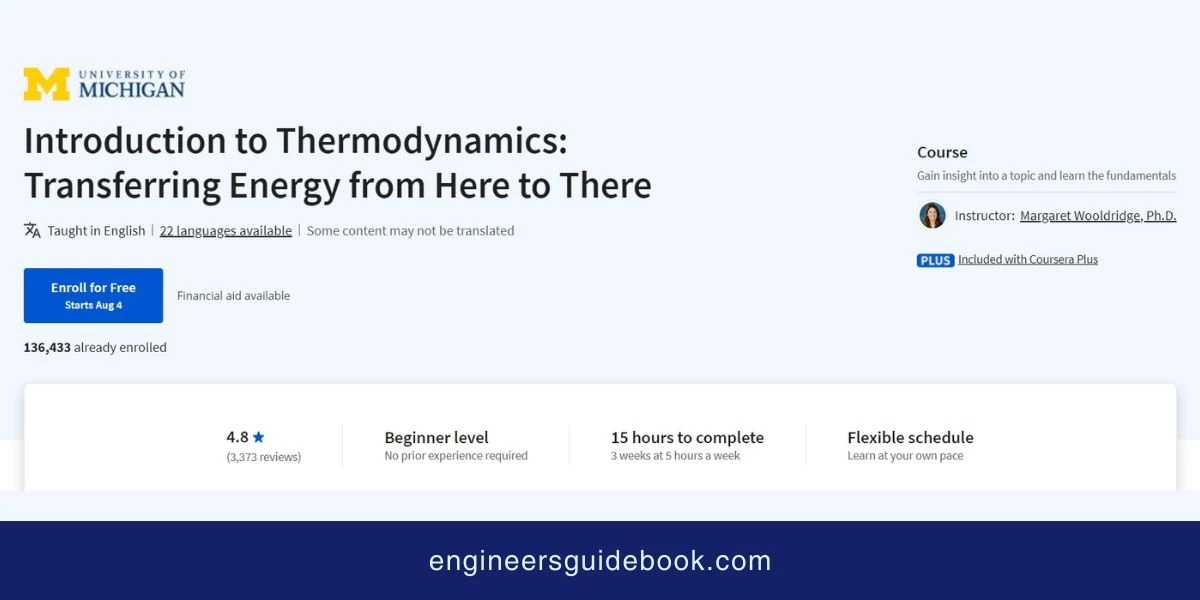
Duration: 3 – 6 Months
The “Introduction to Thermodynamics: Transferring Energy from Here to There” course provides a foundational understanding of thermodynamics principles.
It covers key concepts such as energy transfer, heat, and work, providing mechanical engineers with the knowledge needed to analyze and design thermodynamic systems.
This course is ideal for engineers who want to deepen their understanding of energy systems and their applications.
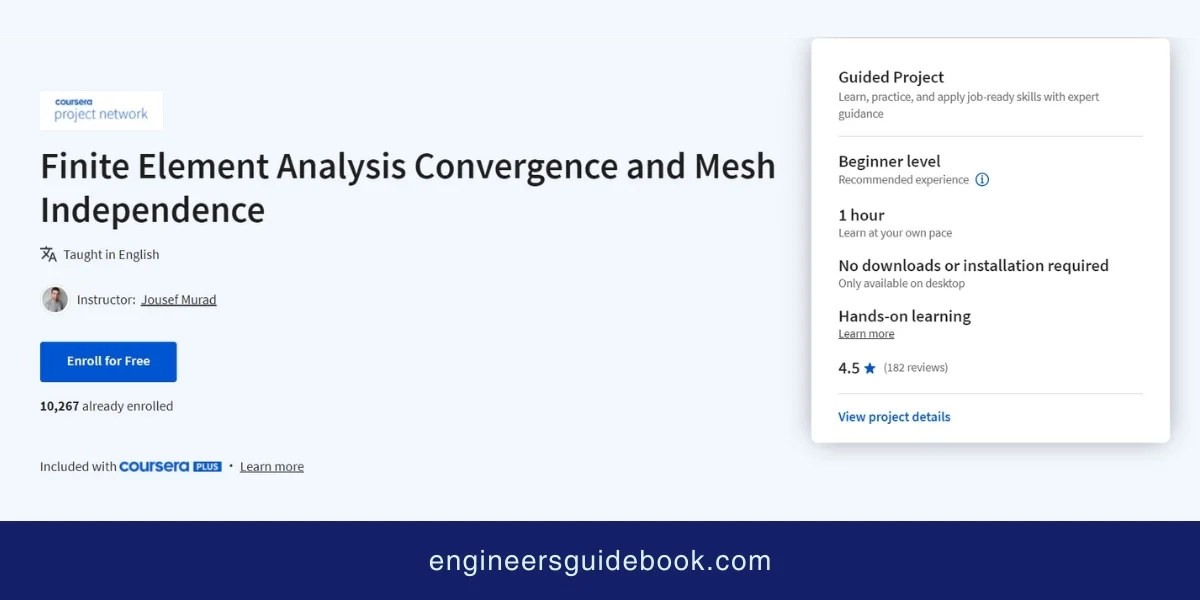
Duration: 2 Hours
The “Finite Element Analysis Convergence and Mesh Independence” course is a guided project focusing on finite element analysis’s convergence and mesh independence (FEA).
It provides a practical understanding of how to ensure the accuracy and reliability of FEA simulations. This course is ideal for mechanical engineers who want to enhance their FEA skills and improve their simulation results.
In today’s rapidly evolving world, continuous learning is vital for mechanical engineers to stay competitive and innovative. The diverse courses offered on Coursera provide mechanical engineers with opportunities to deepen their knowledge and acquire new skills essential for their professional growth. Whether you want to explore foundational topics like thermodynamics and material mechanics or advanced areas such as robotics and finite element analysis, these top 10 courses cater to various interests and career goals.
By enrolling in these courses, engineers can:
Enhance Technical Skills: Gain expertise in essential engineering principles, from stress analysis to computer-aided design, critical for solving complex engineering challenges.
Stay Updated with Industry Trends: Learn about the latest developments and technologies in engineering, such as advanced manufacturing techniques and sustainable practices, to stay ahead in the field.
Improve Problem-Solving Abilities: Develop strong analytical and critical thinking skills by applying theoretical knowledge to practical scenarios and real-world engineering problems.
Expand Career Opportunities: Equip yourself with the skills and certifications that are highly valued by employers, opening doors to new career opportunities and advancement in various engineering sectors.
Adapt to Future Challenges: Build a strong foundation in both classical and modern engineering concepts, enabling you to adapt to future technological advancements and industry demands.
Coursera’s flexible learning platform allows engineers to learn at their own pace and convenience, making it easier to balance education with professional commitments. As the engineering landscape continues to evolve, these courses provide the knowledge and skills necessary to succeed and excel in the ever-changing world of mechanical engineering

Amina Momin, holding a PhD in Chemical Engineering from the University of Texas at Austin, focuses on renewable energy technologies. Her research on biofuels and sustainable chemical processes is contributing to a greener future.
Explore the Engineer’s Guidebook! Find the latest engineering tips, industry insights, and creative projects. Get inspired and fuel your passion for engineering.
© 2023-2024 Engineer’s Guidebook. All rights reserved. Explore, Innovate, Engineer.
One Response
Nice post. I learn one thing more challenging on completely different blogs everyday. It would always be stimulating to learn content from different writers and apply somewhat one thing from their store. I’d favor to make use of some with the content on my weblog whether or not you don’t mind. Natually I’ll provide you with a link in your net blog. Thanks for sharing.